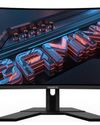
I’ve written a lot about ad blockers in the last few weeks, from Google’s Chrome updates making some popular options inoperable (fave.co/4dY2tVC), to alternatives that will work (fave.co/3U7k3OT), to my reason for blocking every ad on YouTube (fave.co/3TmUtVR). So when I was contacted by representatives from Ghostery (fave.co/3RRFrov), a German company that operates an ad-blocker extension and other privacy products, I was eager to pick their brains.
I’ve been a technology writer for over 10 years, and I can wax poetic on building PCs and keyboards all day. But I’m not a web developer or programmer of any kind, so I relished the opportunity to get an expert opinion on the changes in Chrome’s extension support, from Manifest V2 to V3. The V3 changeover, and its more restrictive access model to some of the browser’s most important internal functions, is the big reason uBlock Origin won’t be compatible with Chrome and Chromium browsers anytime soon.
WHAT’S CHANGING IN CHROME’S MANIFEST V3
Ghostery let me speak with Krzysztof Modras, the director of engineering and product, and company CEO Jean-Paul Schmetz. And the first thing I asked was, what’s the big difference in the Manifest V3 extension support that’s causing all these issues for ad blockers?
“The most important limitation of Manifest V3 is the removal of extension access to the browser’s network layer,” Modras said. “The enforcement of this declarative approach disables advanced on-device protection and in turn will significantly limit innovation in the privacy space. Extensions will lose important tools and permissions that have previously allowed them to quickly react to new threats directly from the user device.”
This story is from the {{IssueName}} edition of {{MagazineName}}.
Start your 7-day Magzter GOLD free trial to access thousands of curated premium stories, and 9,000+ magazines and newspapers.
Already a subscriber ? Sign In
This story is from the {{IssueName}} edition of {{MagazineName}}.
Start your 7-day Magzter GOLD free trial to access thousands of curated premium stories, and 9,000+ magazines and newspapers.
Already a subscriber? Sign In

Windows 11's contentious Recall AI feature is finally ready to test
You can now try Windows 11's controversial Al feature on Qualcomm-powered Copilot+ laptops.

Elgato Facecam Mk. 2: Superb, but it still can't hear you
Elgato's next-generation Facecam offers premium features at a somewhat premium price.

Intel's Arc B580 is the GPU we've begged for since the pandemic
Powered by the new Xe2 Battlemage architecture and a new XeSS 2 frame generation feature, Intel's $249 Arc B580 is bringing 1440p gaming to the masses.

Disposable addresses would make Gmail a privacy powerhouse
Your email address can be a liability for online security, but it doesn’t have to go that way.

How to find your saved passwords in Chrome
If you’re looking for your saved passwords, here’s where to locate them and their related settings.

Gigabyte G34WQCP: An excellent budget ultrawide monitor
This $350 ultrawide earns high marks in SDR brightness, contrast, and color performance.

Trump's tech tariffs could slam your wallet, bigly
If Trump levels a 60 percent tariff against China, that will hurt your wallet in a big way.

The U.S. Justice Department wants to break up Google and Chrome
Google hopes to delay the case until a business-friendly Trump gets control of the DOJ—but that may not be the blessing the company hopes for.

How to make an old monitor look more colorful
Tips for getting your monitor’s color up to speed.

WINDOWS COPILOT+ PCS AREN'T THERE YET: 8 MUST-CHANGE GRADES FOR 2025
IF AI IS THE FUTURE OF WINDOWS, COPILOT+ PCS WILL NEED SOME SERIOUS IMPROVEMENTS.